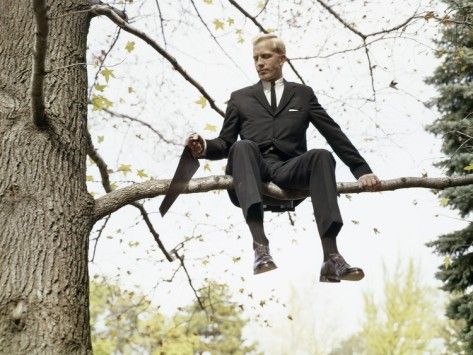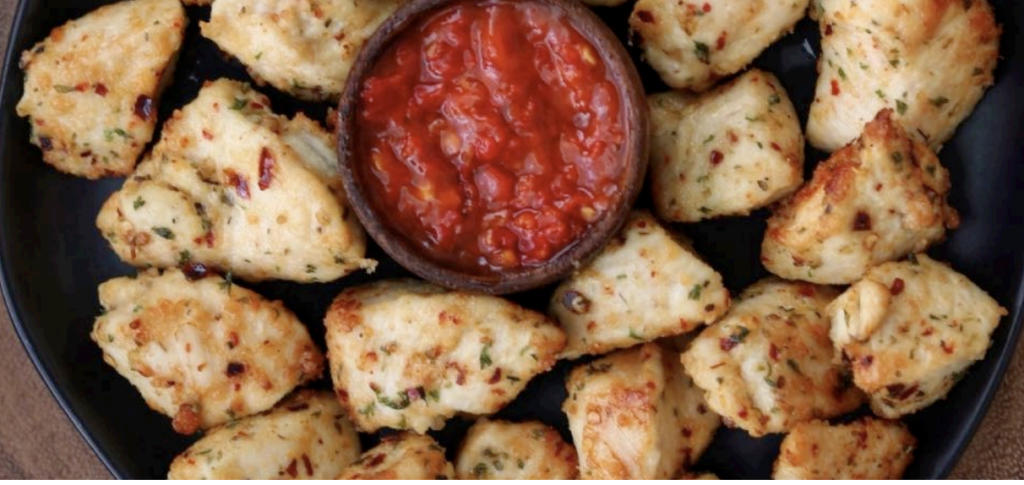You’re finally doing it. You’ve been wanting to lose weight for years, and it’s finally happening. You’re tracking your food intake and you’re sending check-ins to your coach. The scale is coming down and the inches are following suit. Your clothes are starting to fit differently and you’re noticing that you feel a bit more alive with each passing day. Then that text comes in.
“Hey, want to split a bottle of wine and eat some nachos this Friday?”
And in those couple of seconds, it takes to read an invite from a friend, everything changes. You tell yourself that you’ve been working so hard at this, you deserve a chance to let loose. And nachos? Of course, the offer was for nachos, your favorite food. It’s practically a universal law that you can’t turn down nachos when they’re offered.
“Yeah, I’d love to! Count me in.”
So there it is. You’ve got a wine and nacho date this Friday. Who cares what the scale will do Saturday or Sunday. It’s been a stressful week, and like you said, you’ve been working hard at this. How much can one meal really do?
And here’s where things get interesting. For so many of us, it’s never really just one meal. Not once we start down that road. One indulgence bleeds over into the next. Because, well, you woke up Saturday morning with a little bit of a headache and all the lights in your house seemed to be obscenely bright. So, of course, a greasier-than-usual breakfast was the right choice. And then once you’d had that breakfast, well, you might as well keep that trend going. The day is already shot, right?
Sound familiar?
That’s the sort of internal monologue that so many of us are all-too-familiar with. It’s what narrates our decisions when we’re going off-plan and throwing in the towel for a meal, a day, a week, and more. It’s also the internal monologue that many of us hear when we self-sabotage all of ourselves in the dieting process.
We know it’s going on when we’re in the middle of it. When we’ve decided to have an uninhibited date with nachos and wine, there’s always a little voice in the back of our heads telling us that we know we shouldn’t be going this off-plan if we’re serious about the goals we’ve set for ourselves. But does that little voice ever stop us? Hardly.
So why is that? Why do so many of us struggle with the pull of sabotaging ourselves at points in our journey? This was a discussion that took place in the Stronger U Community over the past week. There were plenty of SU members who shared their own honest reflections and lessons from past moments of self-sabotage. That sort of honest sharing is what makes the Stronger U Community what it is. We’re all here to share our lessons with each other so that we can learn from one another and apply those lessons to our own journey. So let’s take a look at what some members had to say and dig into those answers.
“Because my new habits hadn’t yet become my lifestyle.”
“Because habit change is slow. Very, very, very slow. Change one thing at a time. Baby steps. Find a new normal, a new sustainable lifestyle with every small change, and you’ll make it. Change everything at once, and it’ll fall apart. “Diets” fail because they ask for a dozen changes at once. This is why having a coach matters so much- they help you focus on those small steps, and make each small change, which initially feels out of place or impossible, into something that first fits in your life, and then becomes a part of it.”
This is something many of us struggle to understand. It’s been said that many of us overestimate what we can accomplish in a year and underestimate what we can accomplish in five years. That rings true in the world of dieting and changing our bodies. Changing our bodies requires changing our behaviors. But changing our behaviors alone doesn’t get us where we want to go. We have to change our behaviors and let time work it’s magic. Which means that we’ve got to accept that we’re in this for the long haul. The new behaviors you’re practicing won’t just disappear when you reach your goal. These new behaviors are your new normal. They have to be your new normal for the foreseeable future, because change doesn’t happen overnight. Which brings us to our next point.
“Thinking things were a quick fix and something temporary that I would just get through and it would automatically fix everything. Not caring about sustainability or actually making lifestyle changes that would need to be carried forever forward. Lack of ownership over my choices”
“Because it’s easy. When we accept that this is worth the work and set ourselves up for longer-term success is when we stop it. But this doesn’t happen overnight.”
Lao Tzu said that “The journey of a thousand miles starts with a single step.” What’s implied but not said within that quote is that the focus has to remain on each single step. When we’re walking a thousand miles, which is what the process of changing our behaviors can feel like, we have to find a way to strike a balance between keeping our eyes directly on what’s in front of us while also seeing a goal off in the distance.
But what we can’t do is look solely at the destination we hope to reach. Because if we do that, each individual step we take can start to feel more draining than the last. It can get easy to get overwhelmed by how big it all feels. We fall into this trap of thinking that we should be able to get to that far-off destination overnight. But that’s not the case at all, right? That’s not how anything worth achieving actually works.
A big audacious goal like losing a lot of weight, changing your approach to food, and creating a system of behaviors that allows you to maintain your results for the rest of your life should not happen overnight. After all, it probably took you years or decades to get to the point that you decided to make a change. So why should it take a day or a week to change all the behaviors you spent years ingraining?
That’s not to say that it’ll take decades to build in a system of behaviors you can rely on. But it is to say that we all have to accept that when we’ve decided to change, we’ve also accepted that this won’t happen immediately. There will be tests, less-than-perfect days, and plenty of time where we’re not doing anything special. Just following the same behaviors that move us forward, day in and day out.
“All or nothing attitude. If I couldn’t be 100% on the program 100% of the time, then I might as well throw in the towel completely. Eventually, I learned (am still learning) that one off-plan food/meal/day/week doesn’t have to mean failure and a reason to throw everything out the window.”
“For me it is my social life. Almost every weekend I am going out to dinner and brunch. I’d tell myself it is only 2 days but I would sabotage all the work I’d put in during the week. With Stronger U I’ll have the tools to still go out but incorporate my food and drinks to stay within my daily goal instead of overindulging.”
Ahhh that old all or nothing mindset. Isn’t there something so attractive about that? We’re all drawn to the idea of an all-or-nothing mindset. Right now, ESPN is airing a 10-part documentary series about the Chicago Bulls and Michael Jordan, and a resounding thread that’s shown up in that documentary series is just how much Michael Jordan embodied the idea of all-or-nothing. To Jordan, winning was everything. Jordan was willing to do whatever it took to win, no matter the cost. And we celebrated him for it.
But there’s also a reason the world isn’t full of Michael Jordan’s. The idea of being all-or-nothing, as attractive as it may be, isn’t sustainable for the vast majority of us. We’re not Michael Jordan and we shouldn’t hold ourselves up to that standard. We live different lives with different temptations and different pressures. We have different priorities and different values. Which means that for most of us, trying to go all-or-nothing is a gigantic mismatch compared to who we really are.
You don’t have to be perfect. Nobody expects that of you in this program. What you do have to do though is consistently put effort in, even when you might not feel like it. That effort might look differently for all of us. For some, it’s being a bit more mindful of how we approach going to a restaurant. For others, it might look like saying no to an invite we really want to accept, because we know our goals matter more than the short-term enjoyment we’d get.
“I never accepted that these small moments of failure/sabotage are actually a part of the process.”
And here is the last and most important piece of self-sabotaging ourselves. What many of us tend to forget is that anytime we’ve sabotaged our efforts, that presents an opportunity to learn. It’s okay to feel disappointed or discouraged that you went off plan. But we also have a responsibility to remember that those feelings can also be followed up by moments of deeper reflection. We can look back at the choices we made and examine how we felt at that time. Was it a temptation that led us off track? Stress? Anxiety? Something entirely different?
Once we start to tie some feelings to those actions, we can then begin thinking of various strategies we can use to navigate those feelings in the future. Because make no mistake, whatever feeling led you to sabotage yourself is going to show up again. When it does, you’ve been given an opportunity to field-test your new strategies.
And ultimately, that’s what the process of changing really is. It’s putting behaviors and strategies in place and then testing them in the real world. With each test, we get new information we can use to evaluate how we did. And as we test ourselves more and follow it up with honest reflection, we begin to learn invaluable lessons about ourselves. We see where there’s still work to be done and where we’ve successfully adopted a new approach to how we treat food. But that process doesn’t happen overnight. It happens over the course of many nights, many weeks, many years, and many lessons.
Interested in learning more about Stronger U? Email us at info@strongeru.com or to schedule a free informational phone call with someone on our Member Experience Team just CLICK HERE! Can’t wait to hear from you!








